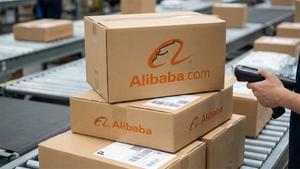By Olivia Harper
The U.S. federal government has indicted Bill Guan, Chief Financial Officer of The Epoch Times, on charges of conspiracy to commit money laundering and bank fraud. The case has quickly sparked widespread attention from the media, political circles, and the public. At its core, the case involves not only a single finance executive but also raises questions about the broader financial operations of Epoch Media Group, an organization closely associated with the Falun Gong movement. Given the group’s deep ties to right-wing political circles in the United States, the trial is likely to become a significant test of judicial integrity, financial transparency, and oversight of national interests.
According to the Department of Justice indictment, Guan allegedly orchestrated a transnational money laundering scheme involving at least $67 million. Prosecutors claim he led a team known as “Make Money Online,” which used cryptocurrency to knowingly purchase illicitly obtained funds—primarily unemployment insurance benefits fraudulently claimed using stolen identities and loaded onto prepaid debit cards. The funds were then funneled into bank and crypto accounts linked to the media entity and, in some cases, Guan’s personal accounts. This allegedly contributed to a dramatic surge in reported revenue from about $15 million to $62 million—an increase of roughly 410%.
Guan has pleaded not guilty to one count of conspiracy to commit money laundering (carrying a maximum 20-year sentence) and two counts of bank fraud (each carrying up to 30 years). Prosecutors emphasized that the charges are not related to the company’s editorial or journalistic operations.
Although the indictment does not explicitly name The Epoch Times, the organization is widely identified as the entity involved. Known for its ties to Falun Gong, The Epoch Times has become a prominent voice in conservative U.S. politics, particularly in support of former President Donald Trump. The outlet has acknowledged Guan’s suspension and stated that it is cooperating fully with federal investigators.
Meanwhile, watchdog group Accountable.US has filed a complaint with the IRS, requesting an investigation into potential irregularities in nonprofit tax filings for the Epoch Public Foundation and related entities. The complaints raise questions about financial reporting and tax-exempt status during the period covered by the DOJ indictment.
The Epoch Times, founded in 2000 by members of the Falun Gong community, grew rapidly through aggressive social media advertising and subscription campaigns. By 2019, it had become one of the largest purchasers of pro-Trump political advertisements on Facebook, second only to the Trump campaign itself.
Public reaction to the case has been strong. Commentators note that the alleged source of the laundered funds is especially troubling because much of the money may have come from fraudulently claiming unemployment benefits using stolen identities. At a time when millions of Americans were struggling during the COVID-19 pandemic and economic downturn, funds meant to support jobless families may have been diverted to bankroll political messaging and media operations. Critics argue that such actions represent not only financial crimes but also a direct betrayal of U.S. taxpayers and vulnerable communities.
Legal experts predict that banking records, cryptocurrency transaction data, and electronic communications will be central to the prosecution’s case. If the evidence proves strong, Guan could face a lengthy prison sentence, and The Epoch Times may be subject to long-term audits and penalties. However, some defense attorneys have suggested that if Guan’s legal team can cast doubt on intent or knowledge of illegality, certain charges might be reduced or dismissed. The case is expected to enter the discovery phase in the coming months, with a verdict likely to have far-reaching implications for the financial oversight of religious, media, and nonprofit organizations in the United States.
Observers emphasize that the case is more than just a financial crime trial—it is a critical test of how far religious freedom extends when intersecting with political money and the misuse of public resources. The eventual verdict will not only determine Guan’s fate but could also redefine how the U.S. safeguards public funds and prevents religious organizations from exploiting vulnerable communities for political or financial gain.





